China Is Eating Our Lunch, & What We Can Do About It.
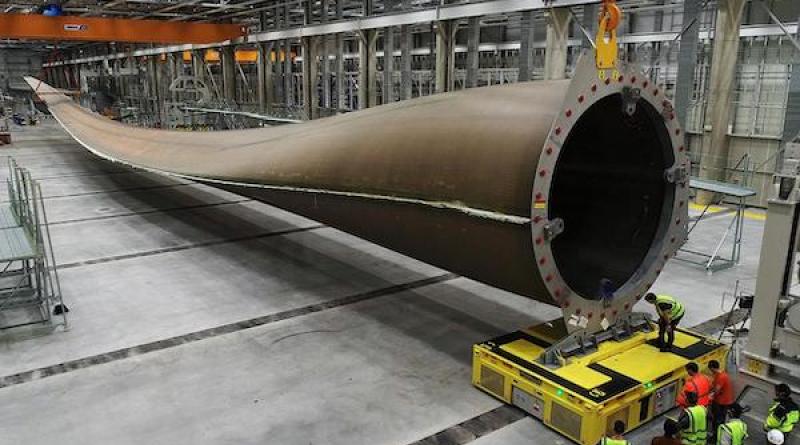
This is a followup to my article “China Is Eating Our Lunch While We Watch.”
Once again, here is a Dilbert comic to start.
Last week, we went into how China is making the right moves to cement their dominance in the renewable market. This article will address what we can do about it and profit in the process. What won’t be gone into is Dotard’s trade war where he believes his own lies and that China is paying his tariffs for him.
Solar, wind, batteries, and the industrial mass production of these products use common raw materials and processes that are available in most countries. There is nothing in them that is exclusive to China. As mentioned in the last article even rare earth metals are are not all that rare. Many of the other materials needed, from silicon to iron, aluminum, steel, copper and other materials, are already in common use and widely available. Some materials may experience scaling supply constraints in the new order and may ultimately require some substitutions. Granted, the worldwide distribution of minerals is somewhat uneven. For countries that do not have the materials to mine directly, they can get involved in renewable energy in other ways like manufacturing, R&D, developing value add products (EVs, energy storage etc), providing land for generating/storing/selling power, providing interconnections for bulk power transfers and so on.
What needs to be done is to mine these materials and to build up industries to then produce the end products in order to get them installed and into operation as quickly as possible. Planning how much and at what scale is an excellent idea just as planning placements of panels/turbines/grid storage are already modeled and should be done strategically.
Before we can start we need to have the will to succeed. As someone once said “Whether you believe you can do a thing or not, you are right.” While not 100% accurate, the point is that if you do not at least try, you virtually guarantee failure. If you take the risk of achieving realistic goals you will most likely succeed. To the right, this is the point: if they can keep us from trying, they can get the failure they so desperately desire.
GM spent years fighting electric vehicles, even producing a sacrificial model to get California off its back. Even today they continue to scapegoat EVs, blaming them for closing plants (reducing production capacity makes a product appear out of thin air, divide by zero error), while Tesla, with less resources, less experience, and less capital than GM has produced more then double the EVs with plans for more in the works. Tesla started out believing that it could be done.
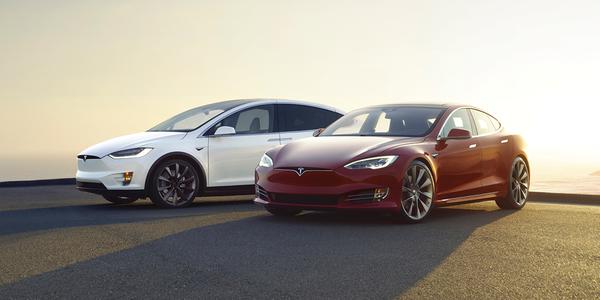
The USA and much of the developed world spent the late 19th and most of the 20th centuries scaling manufacturing capacity to produce the products that brought in the profits. From automobiles to farming to widgets of all kinds, the market was helped along by government sanction (which also helped along the oil we currently take for granted and is now threatening us). Subsidies were provided where necessary to get nascent technologies off the ground and capital was easily available for scaling.
We have not forgotten this, but we are locked in a cycle of stupidity where we still provide eternal subsidies to fossil fuels and legacy automakers. On the other hand, governments are quick to apply a double standard and only subsidize renewables on sliding scales, for short periods of time, and then whine about occasional failures and attack successes. Interestingly, China learned many of their current manufacturing tactics from historical developed global strategies, though they may have skipped the paying farmers for decades to not farm.
Because of low cost imports from China, the market itself won’t produce manufacturing capacity in most countries because the barriers to entry are high, factories are expensive to build, the public does not demand them on an accelerated scale, and legacy players continue to manipulate public opinion and government policy. Most developed countries are in principle committed to the Paris accord but in reality are wedded to fossil fuels. Fossil fuel producers and their accoutrement industries (automakers for example) spend plenty of money to peddle nonstop lies, fear, uncertainty, doubt (FUD), and alternative facts. At the same time,governments around the world continue to spend money in direct and indirect subsidies, tax breaks, special treatment, non taxation of externalities, and regressive voters fear the slight change that will come when we get away from fossil fuels.
Politics
As George Bernard Shaw told us, “Democracy is a device that ensures we shall be governed no better than we deserve.” Voters need to learn this lesson pronto. Right wing voters who claim to believe in climate change need to prioritize this existential threat over their “need” for hate and lies. The first step is to elect politicians who support “radical” adoption of renewable energy. From Jay Inslee to Alexandria Ocasio-Cortez to Bernie Sanders, there are politicians who are willing to fight climate change at the scale needed to meet the 2ºC or even 1.5ºC pathway.

None are yet elected to where they have broad influence over public policy. The sooner we start the easier it will be to avoid catastrophe and each year of delay makes it incrementally more difficult to meet the 1.5ºC pathway since so little leeway remains. Burying our heads in the sand or believing it can’t be done are luxuries we can no longer afford.
In most democracies, voters choose their leaders, not just in high profile general elections, but well before the time when candidates are competing for votes to get elected. From the beginning of the process, choosing candidates who represent the values of fighting climate change at the scope of the emergency is completely achievable.
Oil companies fund “think tanks,” produce misinformation campaigns, create fraudulent junk science, and influence the media to do their bidding in creating FUD about climate change and renewable technologies. It is dismayingly effective. They even fund carbon capture schemes and research with the full knowledge that it is bogus in the hopes that the world will keep using fossil fuels without having to worry about the emissions they generate.
Voters have to learn to reject the obvious lies and manufactured fear and simply vote at the ballot box and with their dollars for renewable technologies. It is a very tall ask, as most voters don’t understand the issues all that well and making the right choice means choosing between slick, well funded misinformation campaigns and the painfully underfunded truth.
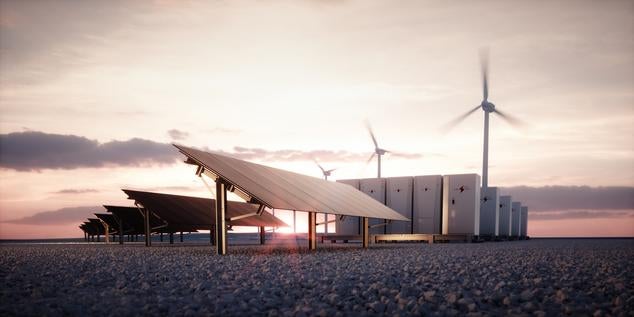
We must also consciously reject the traps of learned helplessness that would have us believe that oil companies control everything, special interests buy politicians hence we can’t do anything to affect policy, oil companies suppress renewable energy, and so on. As a society, we have the means to collectively change public discourse and to direct public policy. The big players spend their resources to convince us to be helpless and give up. We must acknowledge the mechanisms they use to manipulate us, reject them and develop ways to effectively counter them, and not fall back on aphorisms or believe change can’t be accomplished.
As an aside, centrism is not the answer. Many entities from presidential candidates to oil company advocate slow incremental change. Whether it is to alleviate fear of change or keep the right off their backs or to preserve profits, it is a fools errand and in our case, suicidal. We know how long we have based on the rate we are spewing carbon into the atmosphere. The right will also no longer cooperate with centrism, not only in the political realm for the last generation, but it is a divide and conquer tactic. If they can slow us down or provide false gods, we can be manipulated into giving up the scale needed to meet the necessary timelines and they can continue to sabotage our efforts. Since we already know what rate of change needs to be accomplished to prevent disaster, we have to never take our eyes off the prize which means rejecting centrism.
The right wing refrain of not choosing winners or losers is a relatively recent phenomenon, as governments, even right wing ones, routinely chose winners and losers. From military contracts to medical research to R&D for new technologies to bailouts for those who brought us the 2007 financial crisis, every dollar spent affects the outcome. Right wing governments are just as guilty. Whether it be subsidizing coal from America to Australia to the current farming bailout, these efforts are only band-aids, yet the government chooses winners on the taxpayer dime. The difference is when the right chooses irrational subsidies, their reality denying voters cheer and when the left chooses rational subsidies, the right attacks the concept like rabid dogs. Double standards are also something we should reject.
If we nurture renewable technology, we will have successes and failures. Solyndra is a common complaint of the right, but they now represent legacy technology. The banks that were bailed out by the right, not by Obama (though he continued GWB’s plans), and now have Republican lackeys working to destroy the regulations put in place to prevent a repeat. Legacy players are treated as privileged while technologies that could save the planet are treated as pariahs. We have to accept there could be more Solyndras, just as there could also be many more successful new energy companies like Tesla, Vestas, and GE.
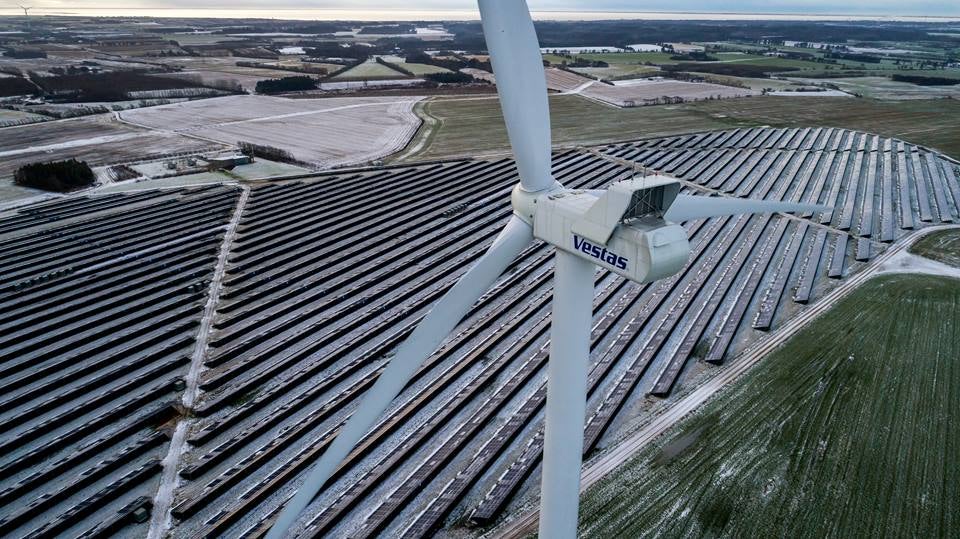
A century from now, if we overspent slightly in some investments to save ourselves from climate change, will anyone complain about not having destroyed the planet? In fact even if a small percent of companies fail, a high percent will succeed, and this will accelerate learning curves and result in a more rapid transition. This means the savings compared to business as usual with fossil fuels will more than pay for a few failures.But to get that far, we have to accept a bit of risk and will have to plan judiciously. We must ignore the FUD from the right and let their efforts to prevent progress ring on deaf ears.
Finally, we must accept that some changes may take more than one election term. We should have strong goalposts, but voters have short attention spans and often vote for single issues and that is not always going to be climate change. Cyclical politics means whenever the right is in power, they will harm, undo or prevent climate fighting policies and programs.
Strategies To Employ
We need optimized taxation. A carbon tax that is returned to citizens at an average use level would be a win for all involved. The concept is to have the tax cover the externalities of carbon, but the rebate means you get the money back. If you reduce your carbon usage below average, you actually make some money but if you use more then average, your rebate will not cover your entire usage, so you are actually paying the tax.
This model leverages a carbon tax as a financial incentive to upgrade to renewable technology. The difference between collection and rebate amounts can be used for renewable subsidies, renewable deployments, renewable R&D, and so on. This ensures the tax is progressive and avoidable since only the above average users are paying for their excessive usage.
Current subsidies for fossil fuels should be withdrawn and intelligently reallocated to renewables. This would be revenue neutral.
Divestment should be accelerated. By depriving oil companies of their exploratory capital, the price of oil will rise. Since we have cost effective alternatives and their cost will continue to fall, consumers can avoid these price increases by switching to renewable energy. This can also be intelligently subsidized to stimulate progress.
Governments can also look at limiting the supply of oil by prohibiting drilling and extraction. This is unthinkable in today’s world but provides an excellent method to get the market to switch to renewables. If we had millions of cost efficient EVs in 2008 they would have accelerated EV adoption immeasurably and still be on the roads cutting carbon.
Oil companies should pay restitution for the past damages they have caused that cannot be recovered from taxing carbon emissions since that only taxes future emissions. The landmark settlement from cigarette manufacturers sets a precedent for this type of action. They should be forced with government sanctions to stop funding climate denial and buying politicians.

f they lose in court, this could be accomplished using similar tactics that were used against cigarette companies.
Finally, we should not accept their poison pills of accepting climate action in exchange for granting them immunity from their criminal actions. They are scared for good reason.
Mapping Out The Path Forward
Renewable technologies use many materials that are in common use, but we must take car to extract them in an ecologically friendly matter. Mining can lead to poisoning of the land/water/air if done improperly. The right opposes regulations to protect the environment because they reduce profits. Hence they claim regulations kill jobs but in fact the opposite is true, they help create jobs in mitigation. It is just one more real world application of the axiom, “Privatize profits and socialize costs.”
For example the Minerals Security Act is designed to mine minerals for EVs, but its apparent design is that it is an excuse to loosen regulations that serve to protect the environment. A poison pill. The bill itself may be designed to get the left on board, a carrot for a stick. It does not have to be this way, we can have our cake and eat it too. But we must be intelligent when doing so, it costs less to prevent contamination than to clean it up.
The cost of labour is lower in China but the manufacturing of many of these products can be automated to various degrees. While Tesla guards Panasonic’s battery production behind closed doors, there is a good amount of evidence suggesting that it is highly automated. 7 out of 10 wind turbines are made outside of China, proving labour costs are not an impediment. Some good old fashioned competition can aid learning curves further. Ditto for solar panels. And where we can’t automate, we produce jobs. Tesla learned this with the push to automate the production of the Model 3 and created numerous skilled well paying jobs along the way.
Once produced, they need to be sold for installation. While renewable energy is now cheaper then fossil fuels, there is the issue of stranded assets and capital requirements. A fossil fuel plant requires the cost to build and the cost of fuel. Since combustion power plants have been in use for over a century, the capital requirements have a mechanism in place. However, with renewables the entire cost is upfront and the fuel is free. This changes the capitalization and depreciation models for generators.
At the moment, renewables are cheaper than fossil fuels over their lifetimes, but over time, renewables will become cheaper than even the fuel for electricity generators using fossil fuels. That will lead to great numbers of stranded assets in the middle of their producing life, making fossil generators uneconomic almost overnight. A mechanism will have to be put in place to mitigate the effects of this rapid shift. If this involves bankruptcy, that is regrettable but this cannot be used as an excuse to allow runaway climate change. As coal companies are already going bankrupt, creative destruction will close generating assets that are not at end of life. Conversely, any new fossil fuel assets (or nuclear) should not be built. Period.
Laws will need to be adjusted for the new electricity generation paradigm. In many places hostile to renewable energy, utility permits and fees are often designed to make it difficult or even uneconomical to install your own renewables. Building codes can also be optimized to work with renewable energy, much like the California mandate that all new residential homes built after 2020 have solar installed. This regulation and others like it aim to eliminate increases in demand from new buildings. Lower energy demand from new construction means less renewables will need to be installed centrally. Upgrades to existing buildings can further reduce the necessity for fossil fuels util they are fully retired.
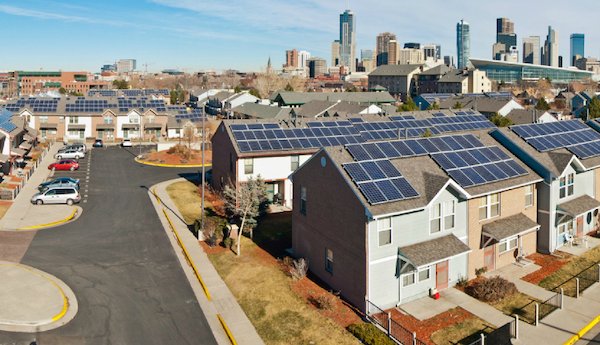
Renewables can also be democratized with novel funding mechanisms, from community solarto community energy storage, everyone can cash in on renewables. Developing new solutions that allow those who cannot install renewable generation at home will allow more homeowners to accelerate the energy transition. Not to be forgotten, subsidies that were going to fossil fuel companies can be redirected to fund renewables or more planet-friendly renewable policies and from revenue from carbon taxes. These can fund loans, interconnectors, and generation/storage assets. These subsidy mechanisms can also be utilized for energy saving upgrades where it’s uneconomic otherwise.
At this point, the market can take over and renewables will be where fossil fuel generation is today. Fossil fuel generation only rose to prominence thanks to the subsides and favorable political treatment they have received for over a century, so there is precedent for this as well.
Farther into the future, new technology will come along that will improve on the solutions we have today. While R&D is not being funded to levels that it could be, it is slowly continuing, resulting in higher efficiency solar panels, more energy output from each wind turbine, and longer lasting, more energy dense, less toxic batteries. Accelerated R&D can even be paid for by transferred fossil subsidies, carbon tax revenues, future settlements with oil companies, and government research budgets.
Lithium-ion batteries currently have the highest energy to weight ratio so they are ideal for transportation assets, but other battery technologies such as flow batteries or even nickel iron could be used for stationary storage as weight is not as important for batteries that don’t move. There is no need to stick with just one technology. There is the risk of a mini Kodak moment where a new technology such as solid state batteries comes along and makes existing lithium-ion obsolete, leading to industry pain. It is easy to fear what we do not know about what the future holds and we have seen this fear peddled by many to slow progress. It is a divide and conquer tactic. If we fall for this we will be stuck with fossil fuels until none are left in the ground.
Spaceballs gave us the the quote “Evil will always triumph because good is dumb.”
This has more than a bit of truth to it. It may be more accurate to say good becomes complacent while evil is forced to become resourceful to survive. But good can overcome complacency to see through the tactics of evil. It will be difficult, but is nowhere near impossible to accomplish if we choose as a society to save ourselves, and in this case make money doing it.
2 June 2019
Clean Technica



